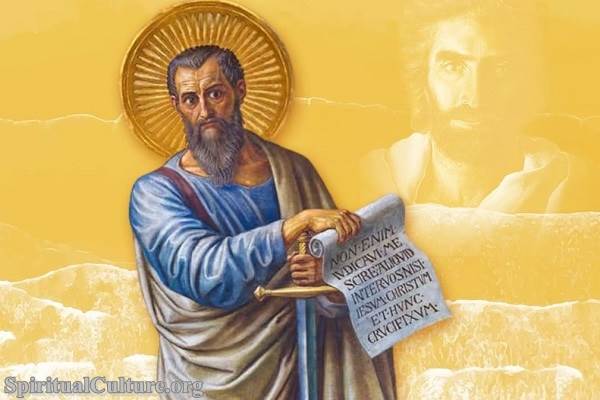From the soaring cathedrals of Europe to the founding charters of modern democracies, the influence of Christianity on Western civilization is both vast and profound. It is not simply a matter of history, but of spirit — a shaping force that transformed not only institutions and laws, but hearts and minds.
At Spiritual Culture, we invite you to explore how Christianity — often quietly, sometimes controversially — laid the groundwork for many of the values, systems, and aspirations that still define the Western world today. This is a story not just of belief, but of beauty, justice, education, mercy, and hope.
In this article, we will trace the contours of that influence — through faith, reason, art, ethics, and freedom — to discover what it truly means to say that Christianity shaped the soul of Western civilization.
The Foundation: Christianity’s Entry into the Roman World
The Rise of a Counter-Cultural Faith
In the first century, Christianity emerged in a Roman world steeped in power, hierarchy, and conquest. Yet it offered something radical: a God who became human, suffered with humanity, and called the lowly blessed. “There is neither Jew nor Greek, slave nor free, male nor female, for you are all one in Christ Jesus” (Galatians 3:28). Such words carried revolutionary implications.
Whereas Roman society celebrated status, Christianity dignified the weak. The early Christians lived in tight-knit communities, shared their possessions, cared for the sick and dying, and refused to abandon infants — a direct contrast to Roman norms.
Transformation through the Cross
With Constantine’s conversion in the 4th century, Christianity shifted from persecuted faith to imperial religion. Yet it did not lose its radical edge. It infused the empire with a new moral compass: mercy, forgiveness, humility, and universal dignity. Roman institutions began to transform, not through conquest, but through conscience.
A New Moral Vision: Human Dignity and the Sanctity of Life
The Image of God in Every Person
Christianity introduced the idea that every human being is made in the imago Dei — the image of God (Genesis 1:27). This became the moral foundation for the Western understanding of human rights.
This was a spiritual revolution. In pagan antiquity, the value of a person depended on status, power, or usefulness. Christianity declared that even the poor, the unborn, the disabled, and the enemy held inviolable worth.
From Charity to Humanitarianism
Before Christianity, organized charity was rare. The church not only urged believers to help the poor, but institutionalized mercy: building hospitals, orphanages, and homes for the destitute. Acts of compassion were no longer occasional favors — they became a Christian duty.
As the church grew, so did its mission to care for the “least of these” (Matthew 25:40). This ethic became the heart of Western humanitarianism, inspiring later movements for abolition, prison reform, and civil rights.
The Power of Education: Christianity and the Rise of the University
Learning as a Sacred Calling
Monasteries became centers of literacy and learning in the early medieval period. Monks preserved not only Scripture but classical texts. Education was not a luxury — it was a means to understand God’s world and cultivate the soul.
In time, this commitment birthed the first universities — Paris, Oxford, Bologna — institutions established by the Church to pursue theologia, philosophy, and the sciences. Their goal: to unite faith and reason.
The Christian Worldview and Scientific Curiosity
Contrary to modern myths, Christianity did not suppress science. It encouraged it. Belief in a rational Creator led to the conviction that the universe was orderly, intelligible, and worthy of study. Many early scientists — Copernicus, Kepler, Newton — saw their discoveries as uncovering God’s design.
The Beauty of Worship: Art, Music, and Architecture
Creating for the Glory of God
From Byzantine icons to Gothic cathedrals, Christian faith gave rise to a stunning visual language — where beauty was an expression of divine truth. The stained glass of Chartres, the ceiling of the Sistine Chapel, the illuminated pages of Celtic manuscripts — all were acts of worship.
Medieval and Renaissance artists alike believed their talents were given by God, and their task was to reflect heaven’s light on earth.
Music that Moves the Soul
Christian liturgy also shaped the course of Western music. Gregorian chant, sacred polyphony, and the oratorios of Bach were not just musical forms — they were theological experiences. Bach inscribed his scores with “Soli Deo Gloria” — to God alone be the glory.
Music became a means of spiritual elevation — not merely entertainment, but encounter.
Law, Justice, and the Roots of Freedom
God Over Kings: Christianity and the Rule of Law
The biblical concept of a higher law — one that even kings must obey — laid the groundwork for constitutional government. The Magna Carta (1215), influenced by Christian clerics, asserted that rulers were subject to moral constraints.
Saint Augustine’s vision of the “City of God” shaped Christian political thought: no earthly power is absolute. This check on tyranny became essential to Western liberty.
The Reformation and the Rise of Conscience
The Protestant Reformation reignited debates over authority, truth, and personal faith. Martin Luther’s stand at Worms — “Here I stand, I can do no other” — echoed a new emphasis on conscience over coercion.
The seeds planted here eventually grew into democratic ideas of religious freedom, personal responsibility, and the dignity of dissent.
Literature, Language, and the Christian Imagination
The Bible and the Birth of Vernacular Culture
The Christian impulse to translate Scripture into common tongues reshaped Western literacy. From the Vulgate Latin Bible to Luther’s German translation, to the King James Bible, Christianity elevated the vernacular, making sacred truths accessible to all.
This shift empowered not only personal devotion, but national literatures. The cadences of the Bible influenced Shakespeare, Milton, Tolstoy, and countless others.
Stories That Form the Soul
Western literature is steeped in Christian themes: sin and redemption, fall and grace, pilgrimage and homecoming. From The Divine Comedy to The Chronicles of Narnia, Christian imagination has offered metaphors to understand life’s mysteries and moral choices.
The Spirit of Reform: Abolition, Civil Rights, and Social Conscience
Faith as a Force for Change
While Christian institutions have often failed to live up to their own ideals, Christian faith has often fueled reform. Abolitionists like William Wilberforce and Harriet Tubman acted from deep biblical conviction.
The Civil Rights Movement in the U.S. was led from the pulpit — with Dr. Martin Luther King Jr. preaching justice from the prophets and the Gospels alike.
Christianity provided both the language of dignity and the call to action.
Christianity in Crisis and Continuity
The Age of Secularism
The Enlightenment and modernity challenged the authority of the church, emphasizing reason, skepticism, and autonomy. Yet even secular ideals — freedom, equality, human rights — rest on foundations laid by Christian thought.
As Nietzsche famously put it, Europe may have killed God, but it kept His shadow.
A Legacy Still Alive
Today, though church attendance declines in some Western nations, the imprint of Christianity remains in law, language, ethics, and art. Christmas and Easter shape the calendar. Christian charities continue to care for the vulnerable. The call to love neighbor as self still echoes — even among those who do not name its Source.
Reflect and Reimagine
Christianity did not build Western civilization overnight, nor without flaw. But it offered a vision — of humanity as sacred, truth as knowable, and love as the highest good. That vision shaped laws, inspired poets, lifted the poor, restrained tyrants, and adorned the world with beauty.
At its best, Christianity did not seek control, but conversion; not dominance, but dignity.
As Spiritual Culture, we invite you to reflect: What would the West look like if Christ had never come?
And more deeply — what could it become if we remembered not just His teachings, but His heart?
Let us be shaped again, not only by the civilization Christianity built — but by the Christ who shaped it.


